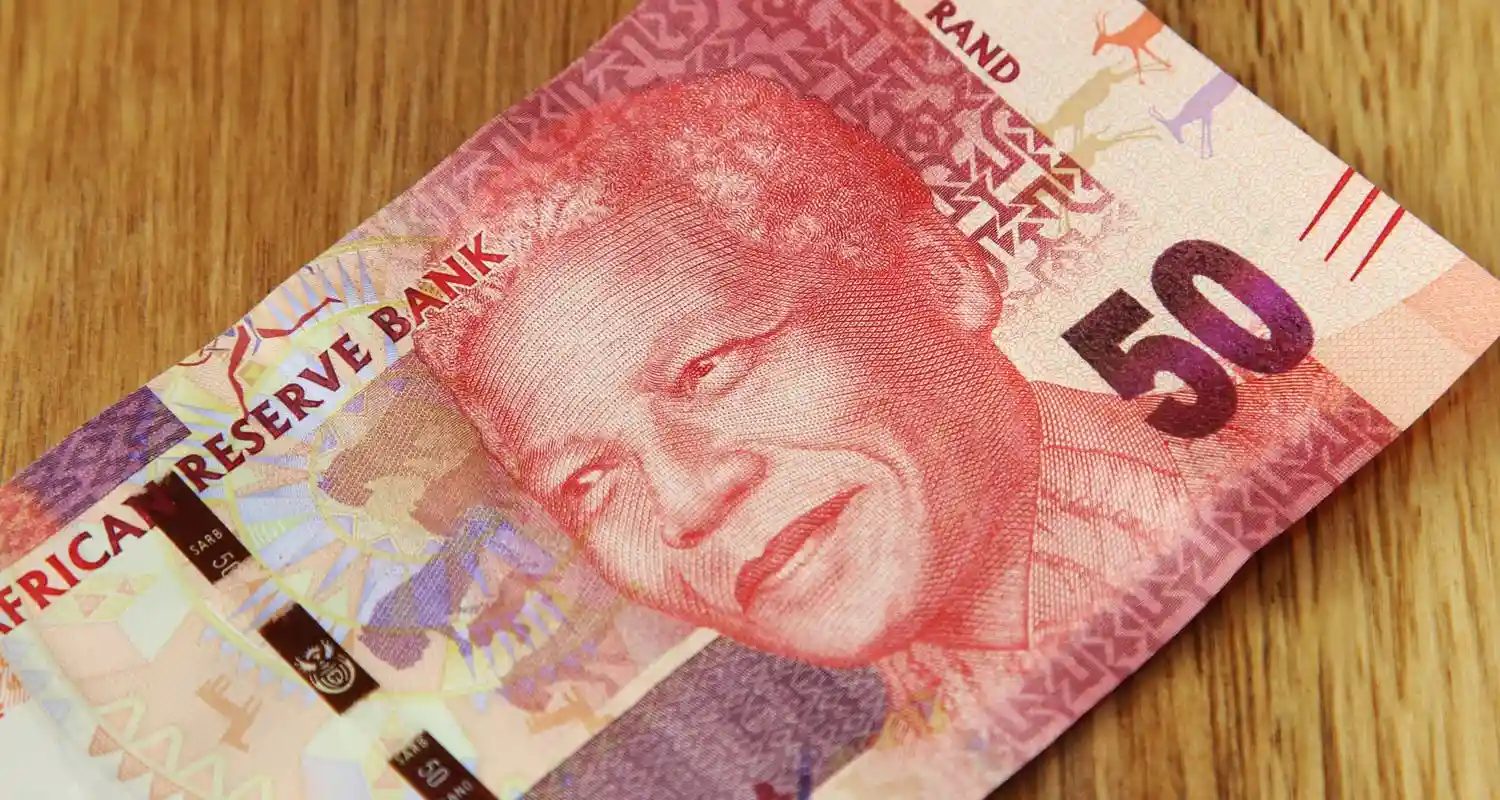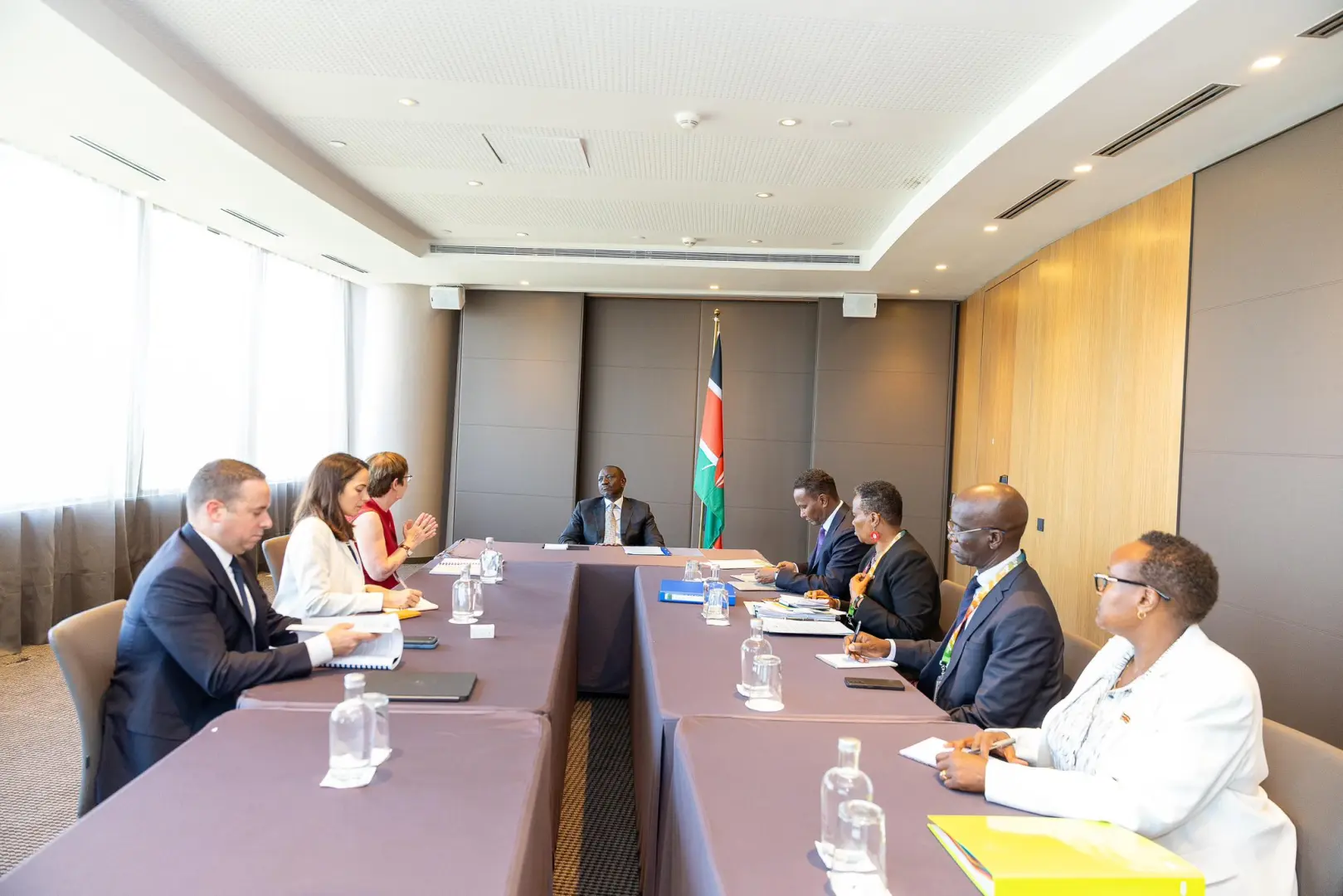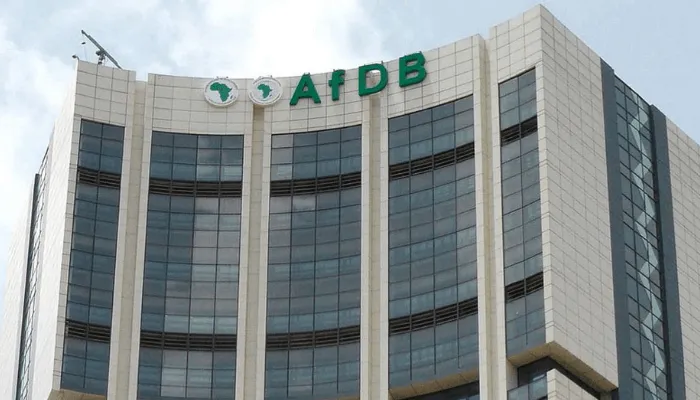The South African rand advanced on Monday, buoyed by reports that the ruling African National Congress (ANC) may abandon plans for a value-added tax (VAT) hike in the upcoming budget. The news comes at a critical juncture, as domestic political debates intersect with shifting global market conditions, including a weaker dollar that has provided some respite to emerging market currencies. At 1404 GMT, the rand traded at 18.89 against the dollar—a notable 1.4% improvement over Friday’s closing level.
This development follows reports from The Sunday Times indicating that the ANC is likely to drop its initial insistence on raising VAT after learning that key coalition partners and political entities are not in favor. The fiscal proposal, which entailed a 0.5 percentage point increase effective May 1, with a further 0.5 point rise planned for the following year, had already sparked contentious debates. The Democratic Alliance (DA), the ANC’s largest coalition partner, has been one of the most vocal opponents, challenging the proposal in parliament and in court proceedings. As investor sentiment remains sensitive to fiscal policy instability, this potential policy reversal appears to have contributed to a renewed confidence in South Africa’s currency and equity markets.
In this in-depth report, we explore the multilayered factors behind the rand’s recent gains, the intricate political dynamics at play, the economic implications of a VAT policy reversal, and the broader market context influenced by global tensions and trade policies.
Political Dynamics and Fiscal Policy Uncertainty
The VAT Hike Controversy
For many South Africans, the proposed VAT increase has been a contentious issue. A hike in VAT typically translates into higher prices for consumers on a wide range of goods and services, from everyday essentials like food and clothing to more discretionary items. As a regressive tax that affects lower-income households disproportionately, the prospect of an increase has generated public outcry and drawn criticism from opposition parties and civil society groups alike.
The planned increase was part of a broader effort by the government to boost tax revenues needed to fund public services and close the fiscal deficit. However, such measures have been met with resistance, especially from the Democratic Alliance, which has raised concerns about the economic burden on consumers and the potential risk of alienating key voter blocs. The stalemate between the ANC and the DA has cast a shadow over the coalition government, sparking fears that political infighting could hamper effective economic governance.
A recent meeting between the ANC and the DA, described as “constructive” by both parties, hinted at possible concessions. While details remain scant, the possibility that the VAT hike might be scrapped—or at least postponed—appears to be a pragmatic response to mounting opposition. Should this development solidify, it could mitigate one of the factors that has contributed to market instability and investor apprehension.
Coalition Politics and Market Sentiment
South Africa’s political landscape is marked by a delicate balance of power within a coalition government. The ANC, a historic party with deep roots in the country’s struggle against apartheid, now finds itself compelled to negotiate with partners like the DA, whose fiscal philosophies often starkly contrast with those of the ruling party. The VAT debate is emblematic of this tension.
Analyst Andre Cilliers of TreasuryONE has noted that scrapping the VAT increase could “keep the government intact” by easing the political strain between the coalition partners. This, in turn, reassures investors who worry about the disruptive potential of prolonged political disagreements. The comfort provided by a potentially unified government can contribute significantly to market stabilization. With political risk often translating directly into financial volatility, clear signals from the government regarding fiscal policy can make the difference between market turmoil and a smooth economic transition.
Lessons from Past Policy Decisions
South Africa’s experience with past VAT hikes provides another layer of context. In previous budget cycles, when VAT increases were implemented, there was an observable tightening in consumer spending and a temporary cooling of economic activity. The prospect of another increase in the near future had investors bracing for a repeat of these effects. Therefore, the possibility of scrapping or delaying the hike carries significant weight in terms of market sentiment. With consumer spending a critical driver of growth in the South African economy, a stable VAT rate could lead to a rebound in domestic demand and support a more positive outlook for the broader economy.
Economic Implications and Market Reactions
The Strengthening Rand and Investor Confidence
The immediate result of the positive news regarding the VAT debate has been a firming of the rand against the dollar. At 18.89, the current trading value marks a clear improvement over previous sessions when uncertainty about fiscal policy had led to a depreciation of the currency. Investors tend to favor currencies of nations where fiscal policy is clear and government finances appear on stable footing. In this instance, the implication that the VAT hike may be shelved has reduced one of the key risks facing the South African economy.
Furthermore, the Johannesburg Stock Exchange (JSE) responded positively, with shares on the blue-chip Top-40 index rising by approximately 2%. This uptick reflects broader investor confidence not only in government policy but also in South Africa’s ability to navigate challenging economic waters amidst global uncertainties. A stable or strengthening currency can lower the cost of imported goods, bolster consumer purchasing power, and foster a more favorable environment for domestic businesses—a vital consideration in an economy that has had to contend with persistent inflation and supply chain disruptions.
The Role of Global Market Conditions
It is crucial to recognize that South Africa’s fortunes are also intertwined with global market dynamics. Recent market volatility in the U.S.—exacerbated by shifting tariff policies under President Donald Trump—has had a knock-on effect, contributing to a general weakening of the dollar on international exchanges. For emerging market currencies like the rand, a weaker dollar is typically advantageous because it lowers the cost of servicing dollar-denominated debt and can help offset inflationary pressures.
Moreover, global economic conditions, including trade tensions between major economies such as the U.S. and China, also play a significant role in influencing market behavior. The recent escalation of tariff policies has added an extra layer of uncertainty to the already volatile global trade environment. As these measures ripple through international markets, they create fluctuations that can either amplify local economic challenges or, conversely, offer relief depending on how they are managed. In South Africa’s case, the combination of mitigating domestic fiscal policy uncertainties with a favorable external environment has proved supportive of the rand.
Government Bonds and Fixed Income Markets
In addition to the currency and equity markets, South Africa’s fixed-income sector has also reacted positively. The benchmark 2030 government bond experienced a notable gain, with yields falling by 8 basis points to 9.225%. This decrease in yield signals increased investor confidence in the country’s fiscal stability, as bonds become more attractive when perceived risks diminish. Lower yields generally indicate that investors are willing to accept lower returns in exchange for what they view as a safer investment—a scenario that aligns with the recent news of potential fiscal policy shifts.
The Broader Economic Landscape in South Africa
Macroeconomic Challenges and Fiscal Policy
South Africa’s economy has long wrestled with a combination of entrenched structural issues, including high unemployment, persistent inequality, and sluggish growth. These challenges are compounded by periodic policy uncertainties, such as debates over tax reforms and government spending. The VAT hike debate is just one of many instances where fiscal policy has become a flashpoint for political and social friction.
In past years, attempts to reform the tax system have met with mixed reactions from the public and opposition forces, underscoring the delicate balance policymakers must maintain between generating necessary revenue and not stifling economic activity. Increasing VAT could theoretically provide the government with much-needed revenue to fund public services and infrastructure projects. However, the economic cost of higher consumer prices—especially for households already grappling with low purchasing power—often outweighs the fiscal benefits, at least in the short term.
Impact on Consumer Behavior and Economic Growth
The prospect of a VAT increase has tangible implications for consumer behavior. As VAT is a consumption tax, its increase directly influences the cost of living. For lower-income households, even a marginal hike can strain budgets and reduce discretionary spending. In an economy where consumer confidence is a key indicator of future growth, maintaining a stable and predictable tax environment is crucial. If the government ultimately decides to scrap the VAT hike, it is likely to sustain consumer spending, supporting a broader recovery in domestic economic activity.
Furthermore, a stable VAT environment would send a positive signal to businesses and investors. Firms are more likely to invest in capital projects and hire new employees if they can predict a stable cost environment. This, in turn, boosts economic productivity and may eventually lead to job creation—a vital outcome for a country facing historically high unemployment rates.
Political Reconciliation and the Road Ahead
Constructive Dialogue Between Political Parties
The recent meeting between the ANC and the DA appears to be a promising sign. Both parties described the discussions as constructive, suggesting that there may be movement towards a consensus on fiscal policy that avoids measures likely to provoke widespread public discontent. While neither party has offered detailed statements regarding their talks, the willingness to engage constructively bodes well for the future of the coalition government.
A unified approach to fiscal policy is crucial, not just for political stability but also for economic forecasting. When coalition partners are at odds, market participants respond with heightened caution, which often results in volatile economic indicators and a depreciating currency. Conversely, when there is alignment on key issues such as taxation, it enables policymakers to focus on long-term economic challenges rather than short-term political battles.
The Importance of Investor Confidence
Investor confidence is a vital component of any country’s economic stability. In South Africa’s case, ongoing political debates and fiscal uncertainties have, at times, undermined market confidence, leading to capital outflows and depreciating currency values. The current improvement in the rand, bolstered by the potential scrapping of the VAT hike, signifies a restoration of confidence among both domestic and international investors.
Financial markets, sensitive to even minor shifts in fiscal policy, have responded with measurable gains—not only in the currency but also in equity and bond markets. A strengthened rand improves South Africa’s competitiveness by reducing the cost of imports and making the country more attractive to foreign investors. Additionally, consistent and transparent fiscal policy aids in building long-term investor trust, essential for sustainable economic growth.
Global Implications and the South African Context
While much of the focus remains domestically, the developments in South Africa resonate on a global scale. As major economies grapple with their own fiscal challenges amid a backdrop of geopolitical tensions and shifting trade policies, emerging markets like South Africa offer a case study in the interplay of local politics and global market dynamics.
For example, U.S. President Donald Trump’s recent tariff policies and the resulting trade tensions have had a cascading effect on markets worldwide. South Africa, as a significant player in the global commodity market and a major destination for foreign investment, is inevitably influenced by these international developments. A robust political response—such as easing potentially harmful tax increases—can help insulate the nation from global volatility while positioning it as an attractive destination for investment.
Broader Lessons: Fiscal Policy, Political Stability, and Economic Resilience
Balancing Revenue Needs and Economic Growth
Governments around the world face the perennial challenge of balancing the need to increase revenue with the imperative of promoting economic growth. Tax reforms, such as VAT hikes, are double-edged swords—they offer a potential source of public funds but risk dampening consumer spending and stifling economic momentum. South Africa’s current debate underscores the critical nature of this balancing act.
In a broader sense, policy decisions must be made not only with fiscal targets in mind but also with an understanding of their socio-economic impact. For emerging economies, where consumer sentiment and spending can dramatically influence overall economic performance, this balance is even more delicate. Policymakers are thus tasked with the complex challenge of ensuring fiscal sustainability without exacerbating economic inequality or triggering disruptive market reactions.
Political Stability as a Pillar of Economic Health
The recent news on the VAT debate is also a stark reminder of the importance of political stability in maintaining economic health. For markets to thrive, political leaders must work cooperatively to forge policies that reflect both short-term realities and long-term ambitions. The ongoing dialogue between the ANC and the DA, despite their ideological differences, reflects a pragmatic approach to governance—one that prioritizes national stability over partisan gains.
Investor confidence, as evidenced by the recent strengthening of the rand and gains on the Johannesburg Stock Exchange, is inextricably linked to political cohesion. When the political narrative is one of reconciliation and constructive policy-making, markets respond by gaining stability and renewed vigor. Conversely, when political disputes spill over into fiscal policy, the result is often a cycle of volatility that can undermine broader economic performance.
The Role of Global Economic Trends
While domestic factors remain at the forefront, no discussion of South Africa’s economic trajectory is complete without acknowledging the influence of global trends. The weakening of the dollar, driven by shifting trade policies and geopolitical uncertainties, has offered a relative boost to the rand. In an increasingly interconnected global economy, developments in major economies like the United States or China can have immediate repercussions in emerging markets. This interdependence underscores the need for South African policymakers to remain vigilant, ensuring that domestic strategies are resilient enough to withstand external shocks.
Conclusion: A Promising Horizon Amid Uncertainty
The recent gains in the South African rand, spurred by reports that the ANC may scrap a planned VAT hike, provide a hopeful indicator of how political reconciliation and prudent fiscal policy can positively influence market dynamics. In a period marked by both domestic political challenges and significant global uncertainties, the prospect of a more stable and predictable fiscal environment is a welcome development for investors, businesses, and consumers alike.
As the government and its coalition partners work through their differences, the potential rollback of the VAT increase stands as a testament to the importance of adaptive and responsive governance. By prioritizing economic stability and consumer welfare, South Africa is taking decisive steps to address both short-term challenges and long-term growth prospects. The recent market reactions—the firming of the rand, rising equity values, and improving government bond yields—signal that the market is responding favorably to these potential policy shifts.
Looking ahead, the broader lessons from this episode are clear. Effective governance that marries fiscal responsibility with political cooperation is essential for maintaining investor confidence and supporting sustainable economic growth. As global markets continue to navigate the complexities of trade tensions, geopolitical risks, and policy shifts, South Africa’s approach to managing its fiscal challenges may well serve as a blueprint for other emerging economies facing similar headwinds.
In a world where economic and political forces are increasingly intertwined, the ability to adapt swiftly and decisively is paramount. The unfolding developments in South Africa underscore the critical importance of maintaining a delicate balance—between the need for revenue and the imperative to protect consumer purchasing power, between political imperatives and market stability, and between global trends and domestic realities.
For South Africans, as well as global investors, the news offers a glimpse of a future where fiscal prudence and political stability could pave the way for renewed economic momentum. If the government can indeed avoid the VAT hike while implementing other measures to stabilize and stimulate the economy, the resulting environment could lead to sustained growth, higher employment, and improved consumer confidence.
In these turbulent times, where uncertainty often reigns, the ability of a nation to rally around constructive solutions can be the defining factor between economic stagnation and progress. As policymakers continue to navigate a challenging landscape of domestic expectations and international pressures, their decisions in the coming months will be closely watched. The stakes are high, but the potential rewards—a more robust, resilient South African economy—are well worth the effort.
Ultimately, the developments surrounding the VAT debate not only highlight the immediate impact of fiscal policy on market performance but also serve as a broader reminder of the importance of adaptive governance in an ever-changing global economy. With a measured approach and a commitment to balancing diverse interests, South Africa stands at the threshold of a promising horizon—one where economic resilience and political unity converge to chart a course for long-term prosperity.
As the full picture of these policy discussions unfolds, stakeholders across the spectrum—from ordinary consumers to global investors—will be paying close attention. The path forward may still be fraught with challenges, but today’s market optimism offers a reassuring sign that when governments are responsive to the needs of their people, stability and growth can indeed be achieved.
Ready to take your career to the next level? Join our dynamic courses: ACCA, HESI A2, ATI TEAS 7 , HESI EXIT , NCLEX – RN and NCLEX – PN, Financial Literacy!🌟 Dive into a world of opportunities and empower yourself for success. Explore more at Serrari Ed and start your exciting journey today! ✨
photo source: Google
By: Montel Kamau
Serrari Financial Analyst
15th April, 2025
Article, Financial and News Disclaimer
The Value of a Financial Advisor
While this article offers valuable insights, it is essential to recognize that personal finance can be highly complex and unique to each individual. A financial advisor provides professional expertise and personalized guidance to help you make well-informed decisions tailored to your specific circumstances and goals.
Beyond offering knowledge, a financial advisor serves as a trusted partner to help you stay disciplined, avoid common pitfalls, and remain focused on your long-term objectives. Their perspective and experience can complement your own efforts, enhancing your financial well-being and ensuring a more confident approach to managing your finances.
Disclaimer: This article is for informational purposes only and does not constitute financial advice. Readers are encouraged to consult a licensed financial advisor to obtain guidance specific to their financial situation.
Article and News Disclaimer
The information provided on www.serrarigroup.com is for general informational purposes only. While we strive to keep the information up to date and accurate, we make no representations or warranties of any kind, express or implied, about the completeness, accuracy, reliability, suitability, or availability with respect to the website or the information, products, services, or related graphics contained on the website for any purpose. Any reliance you place on such information is therefore strictly at your own risk.
www.serrarigroup.com is not responsible for any errors or omissions, or for the results obtained from the use of this information. All information on the website is provided on an as-is basis, with no guarantee of completeness, accuracy, timeliness, or of the results obtained from the use of this information, and without warranty of any kind, express or implied, including but not limited to warranties of performance, merchantability, and fitness for a particular purpose.
In no event will www.serrarigroup.com be liable to you or anyone else for any decision made or action taken in reliance on the information provided on the website or for any consequential, special, or similar damages, even if advised of the possibility of such damages.
The articles, news, and information presented on www.serrarigroup.com reflect the opinions of the respective authors and contributors and do not necessarily represent the views of the website or its management. Any views or opinions expressed are solely those of the individual authors and do not represent the website's views or opinions as a whole.
The content on www.serrarigroup.com may include links to external websites, which are provided for convenience and informational purposes only. We have no control over the nature, content, and availability of those sites. The inclusion of any links does not necessarily imply a recommendation or endorsement of the views expressed within them.
Every effort is made to keep the website up and running smoothly. However, www.serrarigroup.com takes no responsibility for, and will not be liable for, the website being temporarily unavailable due to technical issues beyond our control.
Please note that laws, regulations, and information can change rapidly, and we advise you to conduct further research and seek professional advice when necessary.
By using www.serrarigroup.com, you agree to this disclaimer and its terms. If you do not agree with this disclaimer, please do not use the website.
www.serrarigroup.com, reserves the right to update, modify, or remove any part of this disclaimer without prior notice. It is your responsibility to review this disclaimer periodically for changes.
Serrari Group 2025





